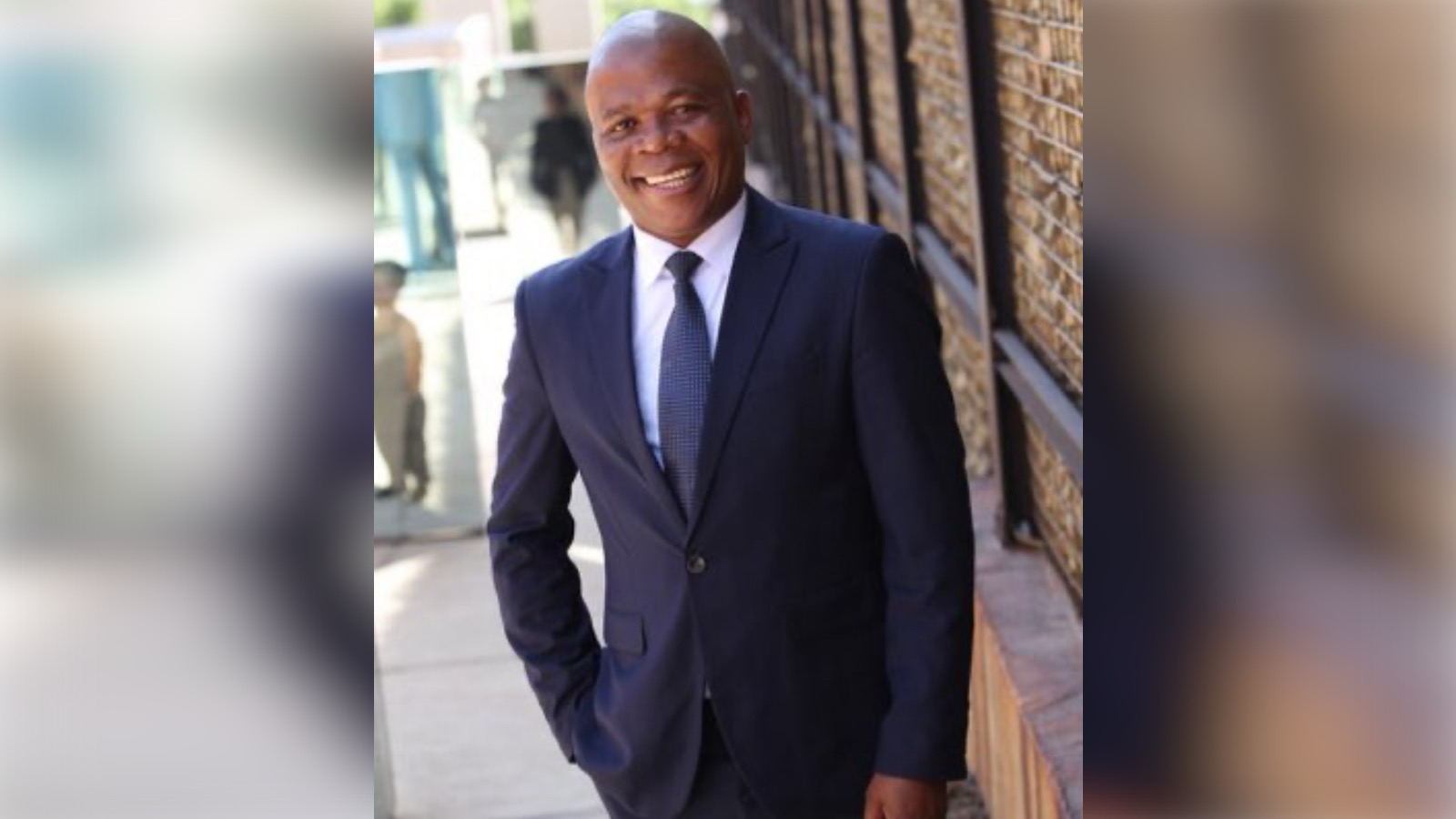
HIGH COURT RULES THAT HUMAN RIGHTS LAWYER MUST NOT BE DENIED ACCESS TO USA DETAINEES
In a landmark ruling that reinforces the fundamental right to legal representation, the eSwatini has ordered correctional authorities to grant a local attorney access to five American nationals detained at the Matsapha Correctional Complex.
The judgment, delivered by Justice B.S. Dlamini on Monday, October 27, 2025, comes after Attorney Sibusiso Nhlabatsi took the Commissioner of His Majesty's Correctional Services and the Attorney General to court for blocking him from consulting with the detainees.
The five individuals were transferred to the kingdom from the United States around July 16, 2025. Attorney Nhlabatsi, acting as a correspondent for US-based lawyers, argued that he was unlawfully denied access after officers at the facility informed him that the detainees did not wish to see him.
Human rights lawyer Sibusiso Nhlabatsi chatting to an unidentified lady. Court says he has a right to consult USA detainees
In their opposition, the Correctional Services argued that Nhlabatsi lacked the legal standing (locus standi) to bring the application since the detainees themselves had not directly instructed him. They further contended that the right to legal representation, as enshrined in Section 21 of the Constitution, did not apply as the individuals were not facing any criminal charges in eSwatini.
However, Justice Dlamini dismissed these arguments as "misdirected and misplaced." In a strongly worded judgment, the court found that the basis of the Correctional Services' opposition was founded on "hearsay." The judge ruled that it was improper for prison officers to act as intermediaries and relay the detainees' alleged refusal to consult.
“The inmates ought to directly and personally inform the Applicant that they do not wish to be represented by him or consult with him," Justice Dlamini stated. He elaborated that if the detainees truly objected to Nhlabatsi's representation, the proper channel would be for them to communicate this to their US attorneys, who would then terminate the local attorney's mandate.
Crucially, the court held that this could only happen after a direct meeting had taken place. The judgment also clarified the vital role of a correspondent attorney in international legal matters. The court noted that since the US attorneys have no right of audience in eSwatini courts, instructing a local lawyer like Nhlabatsi is a standard and necessary global practice.
Therefore, the instructions from the US law firms were sufficient to establish his right to access the clients. On the question of why individuals not facing charges are being held in a detention facility, the court pointedly remarked, "if these immigrants are not facing any criminal charge... then the Court is asking itself why the immigrants are being kept in a detention facility."
The court ultimately granted Attorney Nhlabatsi the relief he sought, allowing him access to the detainees for consultation purposes. The respondents were also ordered to pay the costs of the application. The government has however noted an appeal.
